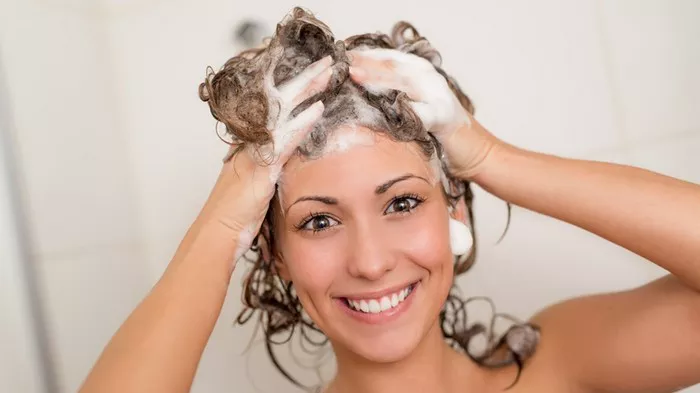Rice water has gained popularity as a hair growth remedy on social media, with TikTokers promoting its use for healthier locks. However, dermatologists caution that the trend may not live up to the hype.
Hair thinning and damage are common concerns, leading many to seek unconventional solutions. The latest trend involves rinsing hair in the starchy, cloudy water obtained after soaking or cleaning rice. Despite the immense interest, dermatologists express skepticism about the efficacy of this simple hair care hack.
Varying Applications and Methods:
The application methods of rice water vary widely, with some letting it ferment and others using added citrus peels to mask the odor. However, the effectiveness of these variations remains uncertain. Videos tagged with “rice water” on TikTok have amassed an impressive 986 million views, showcasing the widespread interest in this trend.
Lack of Scientific Evidence:
While rice water has historical roots in certain Asian countries, especially among the Yao women of China, who credit fermented rice water for their long hair, experts stress the lack of scientific evidence supporting its efficacy. Rice is rich in nutrients like magnesium, iron, folic acid, and more, and rice water contains phenols, potentially beneficial for treating alopecia areata. However, there’s insufficient proof that rice water improves hair health.
Potential Risks of Rice Water:
Dermatologists caution against the potential risks of using rice water on hair. The starch content in rice water may strip moisture from the hair, making it brittle and prone to breakage, particularly for individuals with coiled hair. The consensus among experts is that rice water is not formulated for the scalp, and its application may not effectively reach the hair follicles or shaft.
Rice Water vs. Lifestyle Factors:
Anecdotal evidence suggests positive outcomes for some users, but experts argue that other lifestyle factors or dietary choices may contribute to the observed results. Traditional users of rice water rinses likely follow healthier diets, and attributing hair health solely to rice water may be misleading. Confusion between rice water rinses and products containing rice bran mineral extract, known to promote hair growth, further clouds the trend’s credibility.
Proceed with Caution:
Experts advise caution before embracing the rice water trend. Each person’s hair type is unique, and what works for one may not work for another. Natural products and at-home remedies might not deliver consistent results, and individuals may find more success with evidence-based solutions prescribed by healthcare professionals.
Alternative Approaches to Hair Health:
For those looking to enhance hair health or stimulate growth, dermatologists recommend proven lifestyle changes, such as stress reduction, dandruff treatment, and avoiding heat tools. Products containing rice bran mineral extract, specifically formulated for hair, may offer a safer alternative.
Seek Professional Guidance:
While social media can be a source of inspiration, not all advice is reliable. Dermatologists emphasize the importance of consulting healthcare professionals for personalized solutions tailored to individual needs. Hair, skin, and nails are organs with varying factors influencing their condition, making it essential to rely on evidence-based practices for optimal results.
In conclusion, the rice water trend for hair growth lacks sufficient scientific backing, and individuals are urged to approach such trends with discernment, focusing on proven methods and seeking expert advice for hair care concerns.


